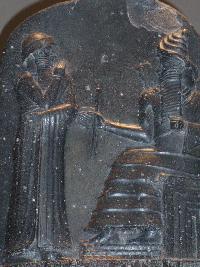Word count when source language is Korean, Chinese, Japanese, Arabic Thread poster: fiomaravilha
|
|---|
hi all,
i have a fundamental doubt that i would like to share here.
today, when you have to translate from English (or any other latin language) to another language, the vendor runs the document to be translated through their leveraging software, getting the number of words in the source language (English), and multiplies that number by their price per word for the target language. For example, to translate "I am ignorant" from English to Japanese, the vendor would charge 3 ... See more hi all,
i have a fundamental doubt that i would like to share here.
today, when you have to translate from English (or any other latin language) to another language, the vendor runs the document to be translated through their leveraging software, getting the number of words in the source language (English), and multiplies that number by their price per word for the target language. For example, to translate "I am ignorant" from English to Japanese, the vendor would charge 3 words x 0.20 USD= 0.60 USD
so far, it's clear to me how this works.
BUT, when the source language is one where one character might be, depending on the context, either one or many words (case of Chinese, Korean, Japanese) or one where multiple words are connected (case of Arabic):
- how does the leveraging software (Trados, et cetera) count the "words" in the source language?
- How does the vendor calculate the cost of the translation from one of these languages into English or another latin language?
thanks in advance to all for sharing your thoughts ▲ Collapse
| | | | | | Xenoglossy
Local time: 12:31
English to Spanish
+ ...
What about charging by target wordcount?
| | | | | per target word | Jul 22, 2012 |
When translating from Japanese, I always charge per target word. Usually the Japanese text is far shorter than the translation turns out. This is the case for Russian, as well as English as a target language.
| | |
|
|
|
| what if you must provide a quote before doing any translation work? | Jul 23, 2012 |
Svetlana_Hikari wrote:
When translating from Japanese, I always charge per target word. Usually the Japanese text is far shorter than the translation turns out. This is the case for Russian, as well as English as a target language.
Svetlana, what if the client asks for a quote *before* giving you the job?
charging by target word only seems possible if you have a relationship with the client that guarantees they are going to pay whatever price comes up after the translation.
my question, therefore, would now be: how do you quote translations from japanese/chinese/korean when you must provide a quote before performing any translations?
From the other thread I linked above, it seems to be the norm to use number of characters rather than number of words.
| | | | | See previous threads on this topic | Jul 25, 2012 |
| | | |
Hello,
This is not definitive and merely reflects my own experience as an Arabic-English translator. I cannot comment on how this might affect or work with CAT tools and I do not outsource.
Where there is uncertainty (usually depending on the format of the document, e.g. PDF) or a client is new, the general rule seems to be to pay per source word, not splitting up the word unit into separate words (by this, I mean "سمعوه" "they heard him" is three words in English but loo... See more Hello,
This is not definitive and merely reflects my own experience as an Arabic-English translator. I cannot comment on how this might affect or work with CAT tools and I do not outsource.
Where there is uncertainty (usually depending on the format of the document, e.g. PDF) or a client is new, the general rule seems to be to pay per source word, not splitting up the word unit into separate words (by this, I mean "سمعوه" "they heard him" is three words in English but looks like one unit in Arabic and is taken as "one word" for the purpose of the word count). I assume this difference and the inflation in AR-EN translation (around 20-25% in the fields I usually work in) is compensated by the rate demanded by the translator.
Where my client and I are more familiar with each other, sometimes the count is done on target words or on an estimate that can be later adjusted (e.g. I initially say I reckon there 12,000 words which is then adjusted up or down later).
Finally, a couple of my direct clients - who use this method for all the languages they work with - use the character method, so that 4 characters, for example, constitute a word for their purposes, so that a word with 12 characters is then 3 words. However, with Arabic, this is not ideal, in my opinion, as the words tend to be quite short.
In short, I reckon working with the number of source words is probably the way to deal with it, however where this may be problematic - handwritten text, unusual font, poor copy, etc. - I'm sure this can be negotiated and will be raised as an issue in any case by the translator.
I hope this is of some help, Aisha ▲ Collapse
| | | | | actual word/character count between Japanese, English and Russian | Mar 25, 2013 |
reposting here from my blog
http://www.kanjidic.com/phpBB3/viewtopic.php?f=6&t=129&sid=0e43f471b1d929442e3ab2c4d25b8e51
Ever wondered how a Japanese volume translates into English and into Russian?
Here is statistics of Japanese source and its English and Russian target translations.
The topic is use ... See more reposting here from my blog
http://www.kanjidic.com/phpBB3/viewtopic.php?f=6&t=129&sid=0e43f471b1d929442e3ab2c4d25b8e51
Ever wondered how a Japanese volume translates into English and into Russian?
Here is statistics of Japanese source and its English and Russian target translations.
The topic is use of cosmetic (beauty) products.
Total source words : 5713, including
Asian characters (Japanese): 5503
Non-Asian words: 210
English: 2167, or 38% of the Japanese source 'word' count (including occasional western words in the source); Source is 264%.
Russian: 2012, or 35% of the same; Source is 284%.
Assuming a prevailing rate of USD 0.20 per target word,
our Japanese source rate is:
USD 0.076 per kanji/kana (Jp - En),
USD 0.070 per kanji/kana (Jp - Ru). ▲ Collapse
| | | | To report site rules violations or get help, contact a site moderator: You can also contact site staff by submitting a support request » Word count when source language is Korean, Chinese, Japanese, Arabic | CafeTran Espresso | You've never met a CAT tool this clever!
Translate faster & easier, using a sophisticated CAT tool built by a translator / developer.
Accept jobs from clients who use Trados, MemoQ, Wordfast & major CAT tools.
Download and start using CafeTran Espresso -- for free
Buy now! » |
| | Trados Studio 2022 Freelance | The leading translation software used by over 270,000 translators.
Designed with your feedback in mind, Trados Studio 2022 delivers an unrivalled, powerful desktop
and cloud solution, empowering you to work in the most efficient and cost-effective way.
More info » |
|
| | | | X Sign in to your ProZ.com account... | | | | | |









